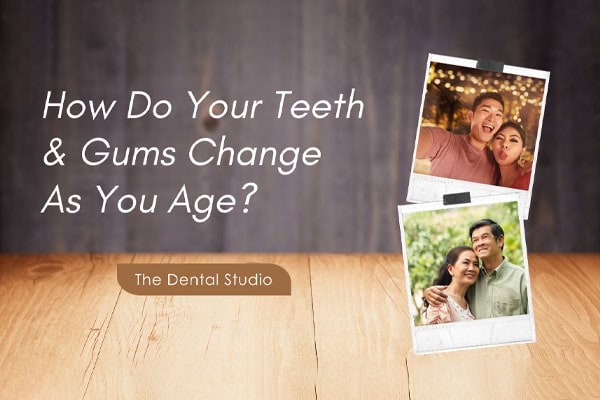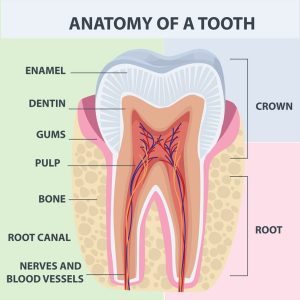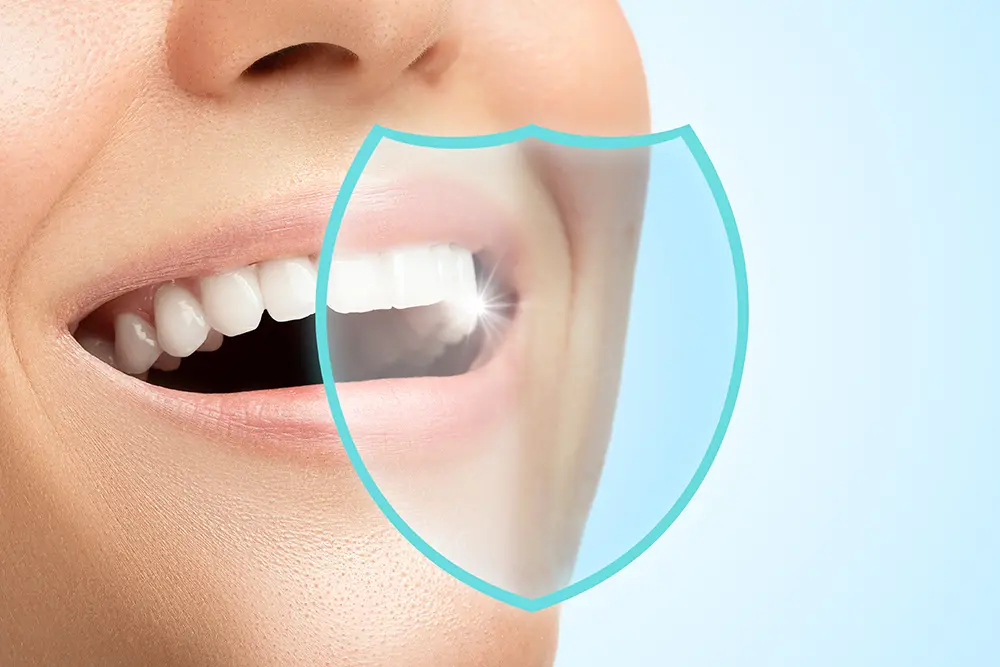Ageing is relentless and continues to be the culprit in our lives which we could do without. There is no shortage of beauty products that proclaim to maintain youth and I often find myself paying good money for them to keep myself looking 25! Hmmm… so that brings me to the two questions my patients usually ask me, “How do I keep my teeth for life?” and “What happens to my teeth and gums as I age, will I eventually lose them?” The good news is preventive dentistry is definitely cheaper than seeking dental treatment when a problem crops up.
Understanding Our Tooth Anatomy
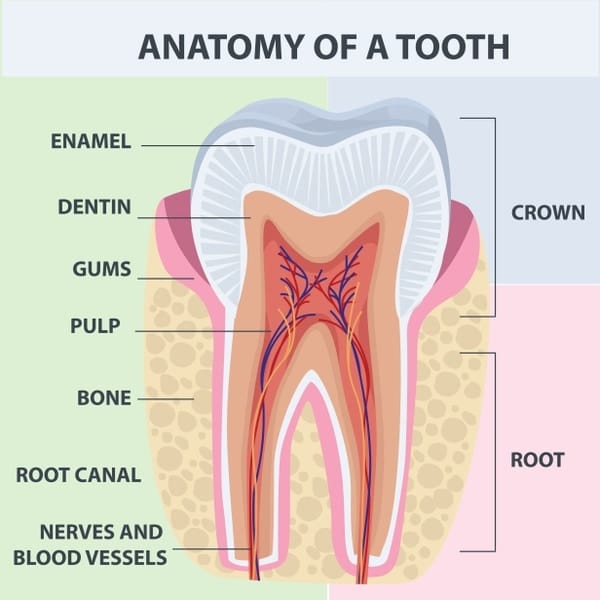
Before I start my discussion on how teeth change with age, it’s important to know the parts that form a tooth.
The tooth consists of 2 main parts, namely the crown and the root. The crown is the part you see in the oral cavity; it consists of the outer enamel covering the dentine, and the pulp cavity (cavity with blood vessels and nerves) within.
The root of a tooth is the part which is usually covered by the gums. It is made up of the structure called cementum (on the outer surface) and the dentine within, with the root canal as the core.
Changes in Your Teeth with Time
Our set of permanent teeth, once present in the oral cavity, do not change with time per se. The changes that happen when one ages are dependent on external factors and how we up-keep our teeth.
The permanent teeth that we are blessed with are like a marble table. The marble table stays the same if there are no external insults. However, if we start scrubbing the marble surfaces, pouring fluids on it and having various insults, the marble starts to change. This is like our teeth.
- As we age, our teeth will show signs of wear and tear with long term eating and grinding of food. The type of food we enjoy will determine the extent of wear. Biting on food that is hard may result in chips on the enamel, or craze line and in severe cases, may result in tooth fracture.
 One who grinds his teeth involuntarily at night (bruxium), will have more prominent signs of wear compared to someone who does not.
One who grinds his teeth involuntarily at night (bruxium), will have more prominent signs of wear compared to someone who does not.- The colour of the teeth may turn yellowish with age. This is a result of the thinning of the enamel layer and the colour of the yellowish dentin showing through. External stains from food can also result in staining of the teeth.
- The interior of the tooth undergoes changes as well. The size of the pulp chamber may reduce in size with age.
Apart from the changes in our teeth’s appearance, it is important to remember that each tooth also sits in the dental bone, which is in turn covered in gums. Therefore, the presence of gum disease, which destroys the supporting structure of the tooth, can result in premature tooth loss.
What Are The Main Causes Of Gum Recession?
Patients frequently ask me if gums recede with age. I would say it is almost like having wrinkles and grey hair. It does not mean that as you age, you will have receding gums and eventually lose your teeth. I have patients who are above 70 years old, who have almost a full set of teeth!
There are various factors that contribute to gum recession:
- Traumatic brushing with a hard brush and incorrect brushing technique can result in gum recession. It is thus important to use a soft toothbrush with the correct brushing techniques to minimise recession.
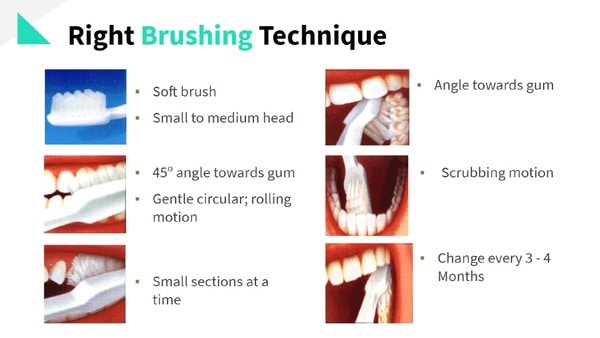
- The presence of gum disease also results in bone loss and gum recession. This will, in turn, contribute to sensitive teeth.
It is thus important to seek treatment early if one has signs of gum disease to prevent premature tooth loss.
Other Dental Changes As You Age
Apart from changes in our teeth and gums, the flow of saliva reduces with age. This can be aggravated by head and neck radiotherapy treatments, or diseases that affect the salivary glands, or even due to the intake of certain medications. With reduced salivary flow, the protection that the saliva offers is reduced. One is thus more prone to dental decay (dental caries), especially along the exposed root surfaces. The gums and surrounding soft tissue may also appear red due to the decrease in lubrication from the saliva. This is similar to our skin getting thinner and easily bruised with age.
With the loss of teeth, the dental bone that supports the teeth also remodel and with time, the facial features may change. For example, someone who loses the upper front teeth over a period of time may experience the loss of the upper lip support if the missing teeth are not replaced. This may make the person look older.
How Can I Strengthen My Teeth And Gums Naturally
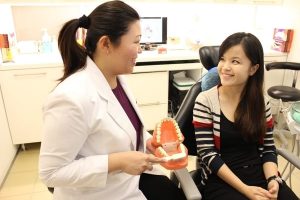
This brings us back to the ladies’ search for youthfulness as one ages. The effort one takes to preserve the youthfulness of the face is also required for the teeth and gums if one strives to age gracefully with the full set of teeth and healthy gums. This includes a balanced diet, good health, optimal oral hygiene, and regular professional care.
In addition, the advances in dentistry enables keeping the teeth of elderly folk through their golden years. With the other bodily changes associated with ageing e.g. deterioration of eyesight and manual dexterity, which can indirectly affect the upkeep of oral hygiene and oral health, it is important to have dentifrices that support the elderly:
- With reduced manual dexterity, an electric toothbrush can be used. It is also important to use fluoride toothpaste to reduce the incidence of dental decay.
- If personal hygiene is compromised, it is important to visit the dentists regularly.
Conclusion


